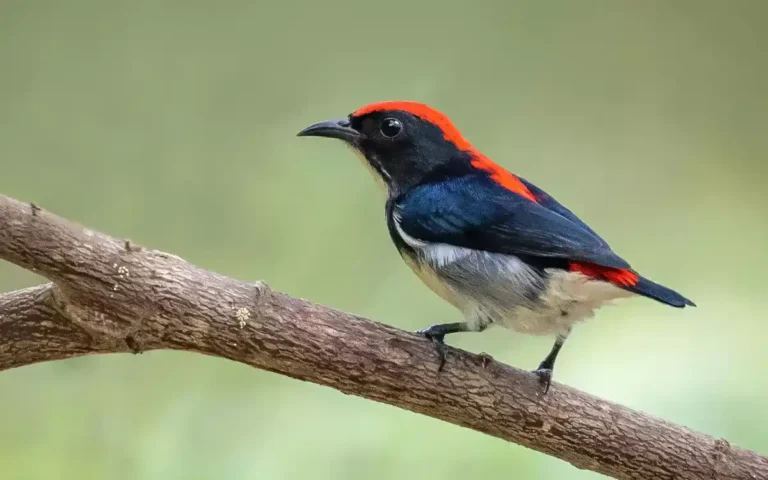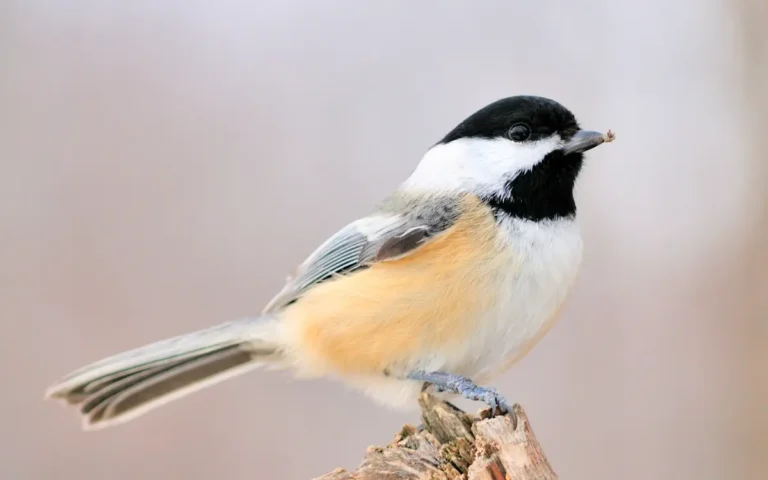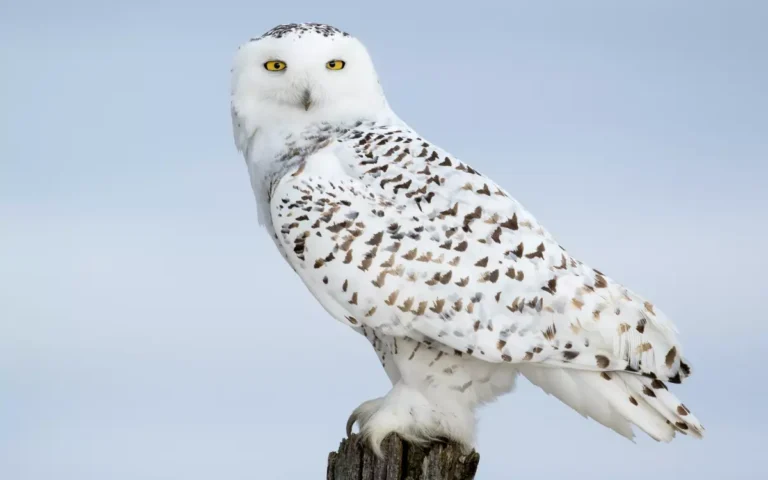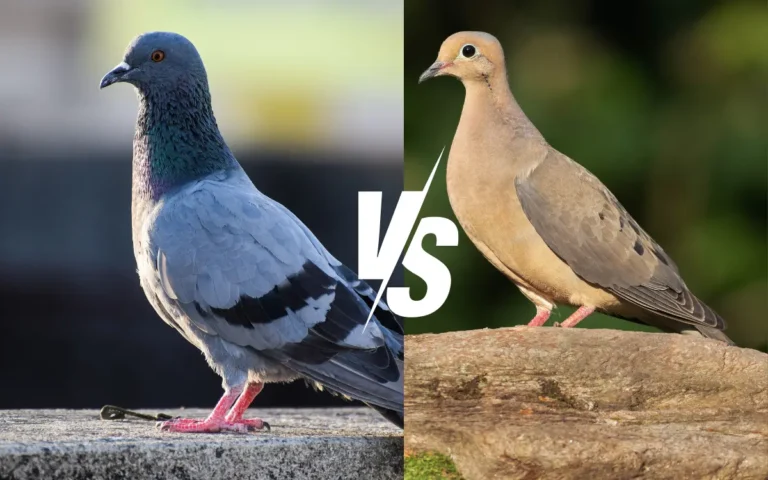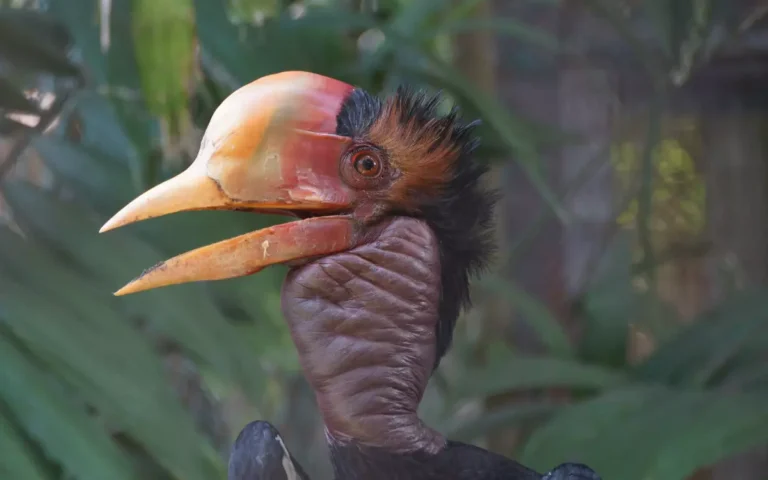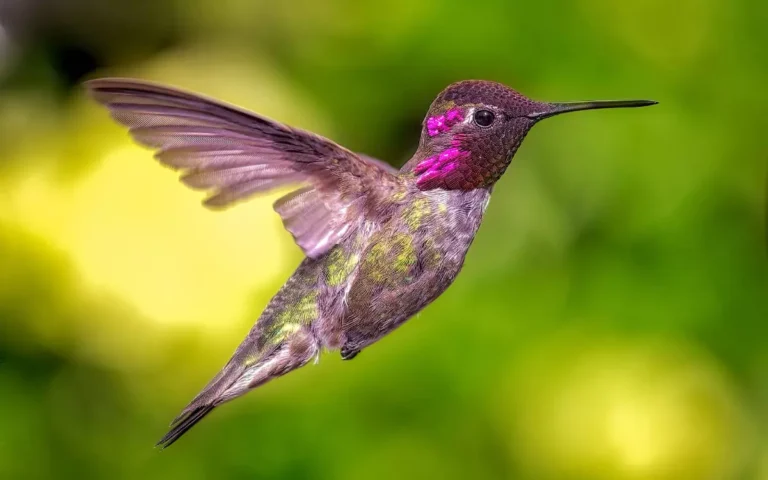Love Birds vs Parakeet: Differences
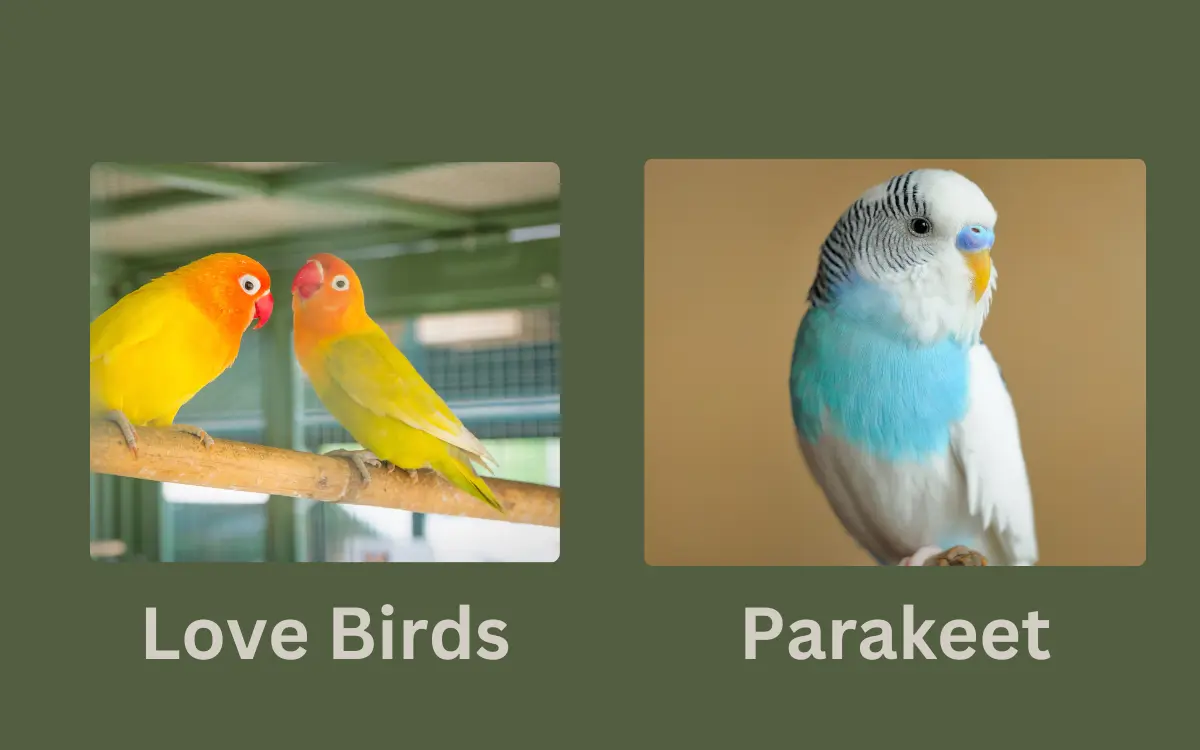
Love Birds and Parakeets are two popular pet birds. Both are colorful, fun, and great companions.
Let’s dive in to see how they compare and help you choose the best feathered friend for your home!
Physical Characteristics
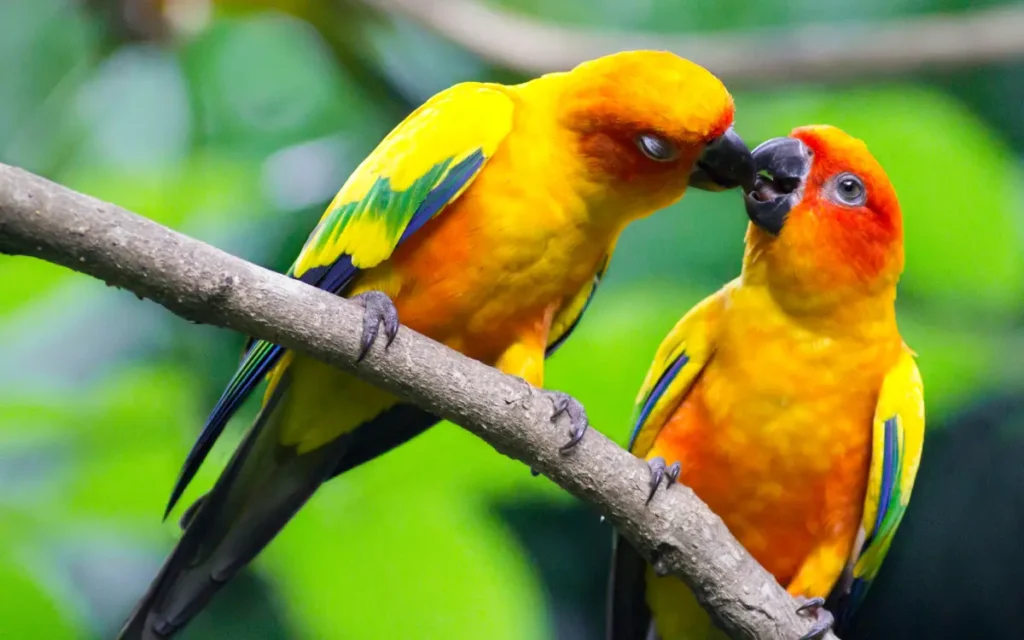
Love Birds
- Size and Appearance: Small, stout bodies, 5-7 inches long.
- Color Variations: Bright colors like green, yellow, orange, and blue.
Parakeets
- Size and Appearance: Slim bodies, 7-8 inches long.
- Color Variations: Wide range, including green, blue, yellow, and white.
Temperament and Behavior
Love Birds
- Social Nature and Bonding: Highly social, form strong bonds with their owners and other birds.
- Playfulness and Energy Levels: Very playful and energetic, enjoy interactive toys and activities.
Parakeets
- Social Nature and Bonding: Social and affectionate, bond well with owners and other birds.
- Playfulness and Energy Levels: Playful and active, love to explore and play with toys.
Talking and Mimicking Ability
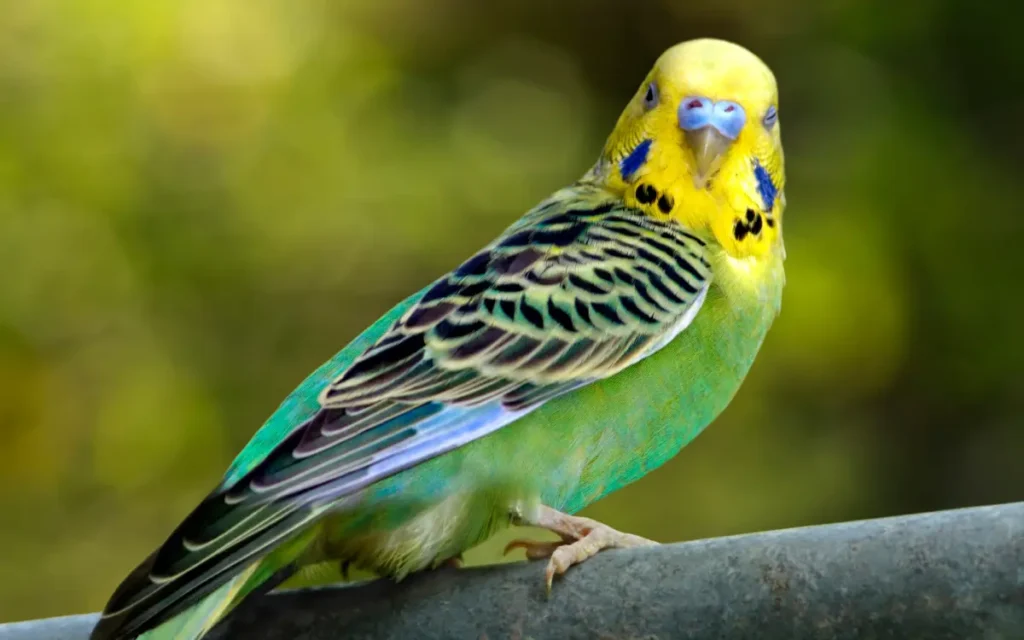
Love Birds
- Vocal Abilities and Limitations: Limited ability to mimic words, mostly chirp and whistle.
Parakeets
- Vocal Abilities and Potential for Talking: Good at mimicking words and phrases, can learn to talk with training.
Care Requirements
Love Birds
- Cage Size and Environment: Need a medium-sized cage with space for toys and perches.
- Diet and Nutrition: Fresh fruits, vegetables, seeds, and pellets.
- Grooming and Health: Regular nail trimming, bathing, and vet check-ups.
Parakeets
- Cage Size and Environment: Need a small to medium-sized cage with toys and perches.
- Diet and Nutrition: Seeds, pellets, fresh fruits, and vegetables.
- Grooming and Health: Regular nail trimming, occasional bathing, and vet check-ups.
Lifespan
Love Birds
- Average Lifespan: 10 to 15 years.
- Factors Affecting It: Diet, environment, healthcare, and social interaction.
Parakeets
- Average Lifespan: 5 to 10 years.
- Factors Affecting It: Diet, environment, healthcare, and social interaction.
Social Interaction
Love Birds
- Interaction with Owners: Very affectionate, need daily interaction with owners.
- Compatibility with Other Birds: Can be territorial; best kept in pairs or alone.
Parakeets
- Interaction with Owners: Social and friendly, enjoy spending time with owners.
- Compatibility with Other Birds: Generally get along well with other birds; can be kept in groups.
Training and Intelligence
Love Birds
- Ease of Training and Tricks: Can learn simple tricks with patience and consistency.
- Problem-Solving Skills: Good problem solvers, enjoy interactive toys.
Parakeets
- Ease of Training and Tricks: Easier to train, can learn to mimic words and perform tricks.
- Problem-Solving Skills: High intelligence, enjoy puzzles and learning new tasks.
Common Health Issues
Love Birds
- Typical Health Problems: Respiratory infections, feather plucking, and nutritional deficiencies.
- Preventive Care: Regular vet check-ups, a balanced diet, clean cage, and plenty of mental stimulation.
Parakeets
- Typical Health Problems: Respiratory issues, mites, and obesity.
- Preventive Care: Regular vet check-ups, a balanced diet, clean cage, and plenty of exercise and interaction.
Read also:-Blue jay vs Cardinal: Key Difference
Final Thoughts
Love Birds and Parakeets both make wonderful pets. Love Birds are affectionate and form strong bonds, while Parakeets are social and enjoy talking and learning tricks. Choose the bird that best fits your lifestyle and enjoy their companionship!

